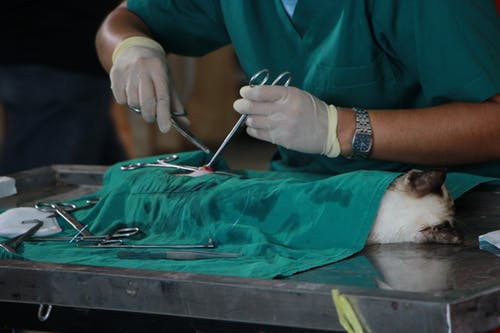Understanding when pets might need surgery and the conditions requiring such procedures is crucial. This article provides an overview of pet surgeries, the animals often requiring surgical intervention, and the health problems typically leading to surgical treatments.
The Necessity of Pet Surgery
Pet surgery may be either emergency-based or elective. Emergency surgeries usually arise from sudden illness or accidents, while elective surgeries are planned and may include procedures such as spaying and neutering. Some common conditions necessitating surgery include broken bones, gastrointestinal blockages, and cancerous tumors.
Pets That May Require Surgery
Various pets may require surgeryfolowing a dog or cat laser therapy depending on their species, age, lifestyle, and particular health issues. Here’s a deeper look into some pets and the common reasons why they may need surgery:
Dogs
Dogs are often most familiar with surgery simply because they are prone to leading active lifestyles and occasionally picking up injuries. Passive injuries are also common. Here are some reasons why a dog may need surgery:
- Mass Removals: Dogs may develop unusual growths or tumors, which might be benign or malignant. These often require surgical removal and subsequent biopsy testing.
- Bone Injuries: Active dogs are prone to broken bones and fractures, particularly ones that engage in energetic playing, jumping, or roughhousing with other dogs. These cases often need surgical realignment and fixation.
- Ear Infections: Chronic ear infections can lead to hematomas or other complications requiring surgery.
Cats
Cats also require surgical procedures, though less frequently, when compared to dogs. Here are common causes for surgical intervention in cats:
- Spaying/Neutering: Most domestic cats are spayed or neutered to prevent unwanted offspring, control certain behavioral issues, and preclude some health problems.
- Dental Problems: Many cats suffer from dental problems like tooth resorption or periodontal disease, which might necessitate surgical intervention.
- Mass Removals: Similar to dogs, cats can also develop abnormal growths that require surgical removal and testing.
Exotic Pets
Exotic pets like rabbits, guinea pigs, birds, and reptiles can also require surgery, depending on their species-specific health issues. These can include:
- Reproductive Issues: Many female rabbits, for example, might need a spay procedure to avoid the high risk of uterine cancer.
- Impaction: Reptiles, particularly lizards, can suffer from impaction if they ingest substrate or have a diet with an improper balance of nutrients, requiring surgery.
Older Pets
Pets of all species with declining organ function due to age might need surgery. Common reasons include:
- Cataract Surgery: Older pets often develop cataracts, leading to visual impairment that can be corrected through surgery.
- Age-related Tumors: Some pets may develop tumors with age. These could be benign or cancerous and may require surgical intervention. In a nutshell, any pet may need surgery, depending on their specific health requirements.
Regular veterinary check-ups help prevent and detect early signs of potential health issues, reducing the chances of needing surgical treatment.
Conditions That Require Surgery in Pets
Several conditions necessitate surgery. For example, chronic arthritis may require corrective surgery in severe cases. Tendon and ligament injuries could mandate surgical intervention if extensive damage occurs. Traumatic injuries, like those from accidents, often require immediate surgery.
Types of Veterinary Surgeries and Their Reasons
The range of pet surgeries is expansive, from orthopedic operations rectifying skeletal issues to soft tissue surgeries addressing internal problems. Particular cases even require cosmetic procedures. The reasons for each type vary greatly, depending upon the pet’s specific health needs.
Surgery in Pets with Special Considerations
Some pets have distinct circumstances or health issues that require special considerations regarding surgery. These can involve particular breeds, older pets, and pets suffering from chronic diseases. Here are some key points:
Liver Disease
Pets suffering from liver disease may require specific considerations during surgery. This is because:
- Anesthesia Metabolization: Pets with liver disease can have challenges metabolizing anesthesia due to the liver’s role in drug breakdown and excretion.
- Blood Clotting: The liver produces proteins important for blood clotting. Pets with liver diseases could have increased bleeding during surgery.
- Post-operative Recovery: Impaired liver function could affect how pets recover from surgery, necessitating special post-operative care.
Pets on Specific Medications
Pets on certain long-term medications may need special attention during surgical procedures. Here’s why:
- Interaction with Anesthesia: Some medications can interact with anesthetic drugs, altering the pet’s response to anesthesia.
- Influence on Recovery: These medications can also influence postoperative recovery, necessitating adjustments in care and pain management.
Elderly Pets
Older pets or those with lessened organ functionality often require surgery adjusted to their unique needs. Here’s what might require attention:
- Tolerance Levels: Older pets may have a decreased tolerance for anesthesia due to changes that come with age.
- Health Conditions: Elderly pets are more likely to have concurrent health problems like heart disease or kidney disease that would require surgical modifications.
- Post-operative Care: Older pets may need more comprehensive post-operative care, including tailored pain management and physical therapy.
Specific Breeds
Certain breeds have unique anatomical and physiological traits requiring special considerations during surgery. For example:
- Brachycephalic Breeds: Dog breeds with a shortened skull shape, like Bulldogs and Pugs, are more liable to face breathing issues during anesthesia.
- Giant Breeds: Larger breeds, such as Great Danes, might need different amounts of anesthesia and could have a higher risk of bloat following surgery.
Cost, Risks, and Recovery from Pet Surgery
The cost of pet surgery can be hefty, influenced by the type of procedure, geographical location, and many other factors. The risks include infection and complications from anesthesia. However, with proper post-operative care, these risks can be minimized.
Pet Wellness Routine Exams
Regular pet wellness checks like those offered by facilities like the New Ulm Regional Veterinary Center can identify early signs of potential health issues, reducing the chances of needing surgical treatment.
Pet Surgery Care
No pet owner wants their beloved companion to undergo surgery. However, such procedures can significantly improve a pet’s quality of life when necessary. This is where pet surgery information comes in handy. For more info, always consult with your professional veterinarian.
Conclusion
Ultimately, early detection and treatment of health issues can minimize the need for surgery. Regular veterinary check-ups play a significant role in this. However, when surgery is necessary, understanding what to expect can prepare pet owners for the journey ahead.




